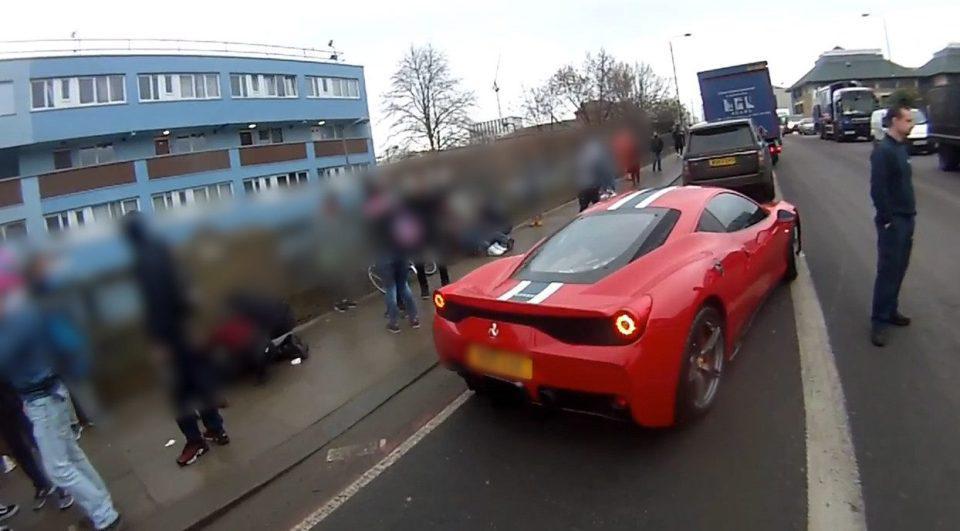CAR T cell leukemia therapy tested at Children’s Hospital Los Angeles
Children and youthfull adults with relapsed or resistant acute lymphoblastic leukemia (ALL) are now being suggested one of the greatest fresh experimental cancer therapies at Children’s Hospital Los Angeles.
Called CAR T cell therapy, the treatment attacks cancer with the ALL patient’s own genetically engineered T cells. The altered cells are programmed to attack cells with a protein called CD19, found on the surface of ALL cells.
Kite Pharma of Santa Monica is partnering with Children’s Hospital Los Angeles to suggest the therapy to patients from two to twenty one years old, who have the CD-19 protein on their ALL cells. Detailed examine information can be found at https://clinicaltrials.gov/demonstrate/NCT02625480.
The very first patient in the trial at Children’s Hospital was enrolled on April 28, said Dr. Alan Wayne, director of the hospital’s Children’s Center for Cancer and Blood Diseases. Wayne is the Lead Principal Investigator on this multi-site trial.
CAR T cell therapy has so far shown itself to be very successful in clinical trials at putting patients with forms of leukemia into remission. The results are all the more incredible because those treated are typically at the end of the line, having failed all other treatments.
“These are major steps forward in developing targeted therapies for children and now adults who had limited to no options,” Wayne said.
In a trial of the CAR T cell treatment by competitor Juno Therapeutics, twenty seven of twenty nine adults with resistant ALL went into remission. That trial, whose results were reported in March, was suggested at the Fred Hutchinson Cancer Research Center in Seattle.
A predecessor to the Kite-sponsored trial in two thousand fourteen reported a accomplish response in fourteen of twenty children or youthfull adults with ALL treated with the therapy.
A accomplish remission doesn’t mean the patients are cured, and they must be monitored to determine the treatment’s long-term efficacy. The engineered T cells often, but not always, remain in the patients to attack the cancer if it comes back.
The persistence of these cells has the side effect of killing normal immune cells called B cells that bear the CD-19 protein, Wayne said. This impairs the immune system.
“Those individuals need to receive ongoing antibody replacement therapy to protect them from infections,” he said.
The fresh trial is classified as Phase 1/Two, meaning that it’s looking for signs of safety and also early signs of efficacy. CAR T cell therapy is known to produce a potentially dangerous immune reaction called a “cytokine storm,” or cytokine release syndrome, caused by chemicals emitted by the CAR T cells in the process of demolishing the cancerous cells.
“They’re fairly activated, and as part of that inflammatory state, where you’ve got T cells killing leukemia cells almost in hand-to-hand combat there’s a entire series of inflammatory cytokines that are produced and released,” Wayne said.
“We see in our trials as well as in similar trials by other groups about a quarter to a third of the children will (be affected) severely enough that they will need to be managed and monitored in the intensive care unit. “Having said that, we know a lot about managing and attempting to prevent the most severe manifestations.”
In the Phase one component, inbetween three and twelve patients will be treated, Wayne said. The puny number treated is a safety requirement from the FDA. The predecessor trial was conducted at the National Institutes of Health while the fresh trial uses a manufacturing process at Kite Pharma, and the FDA wants to be sure the fresh manufacturing process is safe.
Kite’s fresh manufacturing process speeds up production of the genetically modified T cells, Wayne said. From eleven days, already a relatively quick turnaround, Kite has cut the time to six to eight days.
“That’s very significant, given the rapidly progressive nature of relapsed and refractory ALL, particularly in the children we’re treating,” he said. “It’s difficult to keep them stable, waiting for this therapy.”
Assuming safety is demonstrated, the Phase two component will treat fifty patients, Wayne said.
The trial is an “open label” probe, not placebo-controlled. When the experimental therapy shows such promise, it would be unethical to provide a placebo to patients this sick, Wayne said.
“In a Phase one trial, it’s almost unprecedented to have these high remission rates,” he said.
If progress resumes, Wayne said he hopes the CAR T cell therapy can be used earlier in the disease.
“At some point, we might be able to reduce the cargo of chemotherapy and (bone marrow) transplantation on those individuals with leukemia,” he said. “Our long-range objective is to have safer, effective therapies with diminished long-term side effects.”
